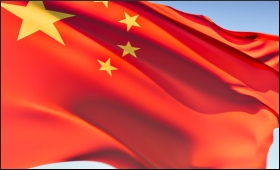|

|
Year of taming the China dragon
|
|

|
|
| Top Stories |
 |
|
|
|
Manish Chand | 29 Dec, 2010
The Chinese dragon hissed and sweet-talked by turns, but the lumbering Indian elephant surprised many towards the year-end by asserting itself, compelling an aggressive Beijing to discreetly stop stapling visas for visitors from the Indian state of Jammu and Kashmir.
The two Asian powers began 2010 with their leaders exchanging warm feel-good greetings on the 60th anniversary of their diplomatic ties, but as the year progressed subliminal tensions came to the surface, putting a prickly relationship under stress.
The turbulence in ties between the two continent-sized neigbours with about 4,000 km shared border has been brewing since the landmark India-US nuclear deal in 2005. It acquired disruptive force in the ensuing years as Beijing first tried to block consensus for India in the Nuclear Suppliers Group in 2008 and showed a new assertiveness over Arunachal Pradesh.
In 2010, the Chinese assertiveness, however, made a mistake of targeting India on Kashmir. In a surprise move in July, Beijing denied a regular visa to Lt.General B.S. Jamwal, an army general in charge of Jammu and Kashmir, allegedly on the ground that Kashmir was a disputed territory between India and Pakistan. New Delhi retaliated, putting bilateral defence exchanges on hold.
Subsequently, Prime Minister Manmohan Singh hosted at his residence the Dalai Lama, the Tibetan spiritual leader who is seen by Beijing as a traitor. New Delhi tried to downplay the meeting as "routine", but the message was clear to Beijing.
Amid growing diplomatic friction, the mild-mannered Manmohan Singh went public with his critique of China in September, saying China was trying to expand its foothold in South Asia. He warned that India needs to be prepared to deal with "a new assertiveness among the Chinese."
Amid reports of thousands of Chinese troops building roads in Pakistani Kashmir, Manmohan Singh aired India's concerns over stapled visas for visitors from Jammu and Kashmir and accelerated Chinese investment in the Pakistan-administered Kashmir when he met Chinese Premier Wen Jiabao in Hanoi on the sidelines of the India-ASEAN summit October-end.
The prime minister is understood to have conveyed that China should respect India's sensitivities on Jammu and Kashmir just as India had done so with Tibet and Taiwan, showing a tough posture which was reiterated when External Affairs Minister S.M. Krishna met his counterpart Yang Jiechi in Wuhan Nov 14.
Although there was no break through on any of the thorny issues, be it the stapled visas or Beijing's support for New Delhi's bid for a permanent seat in the Security Council, Wen Jiabao's Dec 15-17 trip succeeded in stemming the downward slide and in getting the message across that India and China are partners, not rivals, in an emerging Asian century.
Defying sceptics, the two sides set up an ambitious target of nearly doubling bilateral trade to $100 billion by 2015, launched a CEOs' forum, started a strategic economic dialogue to address $24 billion trade imbalance, and ushered an annual trust-building dialogue between foreign ministers.
Highly-placed sources told IANS that with New Delhi upping the ante, Beijing has discreetly stopped stapling visas for visitors from Jammu and Kashmir. Officially, however, the two sides maintain their officials will meet to resolve the issue.
As the year was closing out, New Delhi toughened its diplomatic spine to deal with China as India's decision to attend the Nobel Peace Prize ceremony for Chinese dissident Liu Xiaobo in Oslo showed. The absence of a reiteration of India's commitment to one-China policy from the Dec 16 joint statement that followed talks between Manmohan Singh and Wen Jiabao also was a clear message to China that it was time to get used to an assertive India in the year ahead.
The India-China relations, as Chinese ambassador Zhang Yan warned, could be fragile. And they will perhaps remain so unless, as Foreign Secretary Nirupama Rao said, "Chinese friends" get used to dealing with the "vibrant...noisy, nature of our democracy."
|
|
|
| |
|
|
|
|
|
|
|
|
|
|
|
|
|
|
| |
| Customs Exchange Rates |
| Currency |
Import |
Export |
US Dollar
|
84.35
|
82.60 |
UK Pound
|
106.35
|
102.90 |
Euro
|
92.50
|
89.35 |
| Japanese
Yen |
55.05 |
53.40 |
| As on 12 Oct, 2024 |
|
|
| Daily Poll |
 |
 |
| Do you think Indian businesses will be negatively affected by Trump's America First Policy? |
|
|
|
|
|
| Commented Stories |
 |
|
|
|
|
|
| |
|